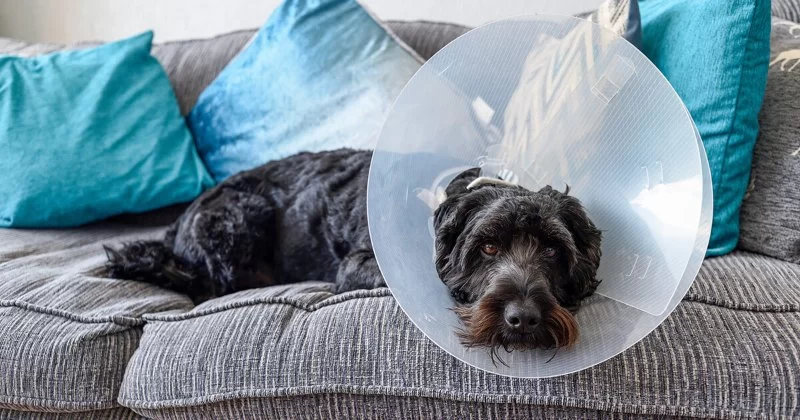- #behavioral-effects-of-spay-neuter-what-owners-should-expect
- #how-spay-neuter-impacts-hormones-and-behavior
- #common-behavior-changes-in-dogs-and-cats
- #real-owner-experiences-and-post-surgery-stories
- #professional-guidance-from-hidden-brook-veterinary
Behavioral Effects of Spay/Neuter: What Owners Should Expect
Many pet owners understand that spay/neuter surgeries help control the pet population and improve long-term health, but fewer realize how these procedures influence behavior.
Whether you share your home with a spirited puppy, an easily stressed rescue dog, or a shy indoor cat, knowing what behavioral changes to expect can make recovery smoother and help you better support your pet. Spay/neuter surgeries affect hormone levels, and hormones shape everything from mood to movement.
This is why veterinarians emphasize not only physical recovery but also emotional and behavioral adjustments after surgery. With proper care and awareness, most pets transition smoothly—and often become calmer, safer, and more focused companions.
1. How Spay/Neuter Impacts Hormones and Behavior
Spay/neuter surgeries remove or disable reproductive organs and greatly reduce sex-related hormones such as estrogen and testosterone. These hormonal changes affect both physical instincts and emotional responses.
Owners often notice changes gradually—sometimes within days, other times over several months. Understanding the connection between hormones and behavior helps ensure you interpret these changes correctly and respond with patience and confidence.
1.1 Why Hormonal Shifts Influence Everyday Behavior
Hormones influence territorial instincts, roaming tendencies, anxiety, attention, and even sleep patterns. When those hormone levels decline, pets naturally adjust their behaviors.
For example, a male dog fixated on finding females in heat may suddenly show less urgency to escape the yard. A female cat who once vocalized loudly during heat cycles becomes quieter and more relaxed.
1.2 Behavioral Changes Are Not Instant
Some owners expect immediate changes, but behavioral shifts develop over time. The body needs to stabilize hormonally, and habits formed before surgery may continue until retraining or environmental support helps redirect them.
Think of it as gradually rewiring instincts—not flipping a switch.
1.3 Why Spay/Neuter Does Not “Fix Everything”
Although the procedures reduce hormone-related behaviors, they don’t erase all forms of aggression, fear, or anxiety. A shy dog may still need confidence-building, while an excitable cat may still require structured play and enrichment.
This is where guidance from professionals such as the team at Hidden Brook Veterinary becomes valuable.
2. Common Behavior Changes in Dogs and Cats
While every pet is unique, many behavioral effects of spay/neuter surgeries follow recognizable patterns. Understanding these helps you distinguish normal adjustments from red flags that may require veterinary attention.
2.1 Changes Pet Owners Commonly See in Dogs
For dogs, both males and females often experience reduced roaming, less urine-marking, and a decline in dominance-based behaviors.
Male dogs may show less mounting behavior and reduced reactivity toward other male dogs. Female dogs frequently become more even-tempered after hormone swings associated with heat cycles disappear.
Some dogs appear more cuddly in the weeks after recovery because they associate owner closeness with comfort—especially if they were anxious during healing.
2.2 Behavioral Effects Noticed in Cats
Cats often demonstrate some of the most noticeable post-surgery improvements. Female cats no longer yowl, pace, or display agitation from heat cycles. Male cats tend to reduce spraying (although previously learned spraying may require behavior modification).
Many cat owners notice that their pets become slightly calmer, more affectionate, and more content staying close to home.
2.3 Temporary Behavioral Regressions After Surgery
It’s also normal for pets to display short-term anxiety or irritability immediately after surgery. Anesthesia, discomfort, and environmental changes can temporarily affect appetite, mood, and sleep.
Most of these regressions resolve within a few days, especially when pain is well managed and a predictable routine is restored.
2.4 The Myth: “Neutering Makes Pets Gain Weight”
Weight gain isn’t caused by the surgery itself but by decreased energy needs. After surgery, pets may burn fewer calories, so adjusting food portions and maintaining daily exercise prevents weight-related issues.
Keeping a pet active is also beneficial for emotional stability, particularly for young animals with lots of stored energy.
3. Real Owner Experiences and Post-Surgery Stories
Online communities share countless stories about spay/neuter recovery, and many highlight the emotional journey pets experience.
One popular viral story involved a newly neutered rescue dog who kept bringing his owner toys for three days straight—almost as if he wanted reassurance. His behavior returned to normal once the discomfort faded, but his owner noted the experience made their bond stronger.
Another family shared how their female cat became incredibly affectionate post-spay, curling up at her owner’s feet every night after years of aloofness. This change surprised the family but is common when a cat transitions away from hormonal anxiety.
Stories like these help reassure first-time pet owners that emotional fluctuations are natural and often temporary.
4. Professional Guidance From Hidden Brook Veterinary
Behavioral effects of spay/neuter surgeries vary, but with the right knowledge and support, owners can navigate the process with ease.
For personalized advice, postoperative care guidance, or behavior-related consultations, the experts at Hidden Brook Veterinary offer reliable assistance tailored to your pet’s unique needs.
Understanding what to expect emotionally and behaviorally helps you support your pet during recovery—and strengthens the lifelong bond between you and your companion.












